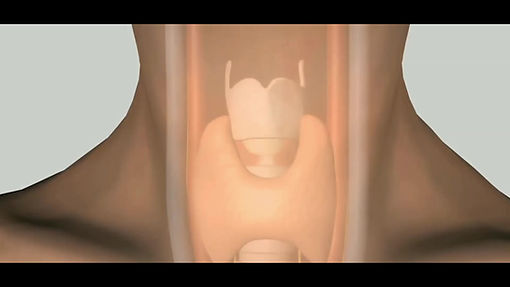Clinical Lead & Senior Consultant - Surgical Oncology
MS, MRCS (UK)-M.ch, DNB ( surgical oncologist),FMAS, FAIS, FICRS ( Robotic Surgery )

Cancer can be cured if detected early!
Cancer—a word that evokes fear, uncertainty, and emotional turmoil. For patients and their families, it often brings a sense of helplessness. But today, with advancements in medical science, cancer is no longer a hopeless battle. With timely diagnosis and expert care, it can be treated—and even defeated.
In such crucial times, the guidance of an experienced and skilled cancer specialist can make all the difference.
That’s where Dr. Vimalathithan steps in—a highly respected surgical oncologist in India, known for his precision, ethical practice, and compassionate approach. With years of experience in treating a wide spectrum of cancers using cutting-edge techniques, he is committed to delivering the best possible outcomes to every patient he treats.

Independence Day Special: Freedom from Cancer
Celebrate Freedom with Early Cancer Screening in Chennai 🇮🇳
This Independence Day, let’s not just celebrate freedom — let’s protect it. Good health is our greatest independence, and early cancer screening is one of the best ways to safeguard it. Many cancers, including breast, cervical, thyroid, and gastrointestinal cancers, can be detected early — when treatment is simpler and more effective.
At Dr. Vimalathithan’s Oncology Clinic, we offer advanced screening services in Chennai using the latest diagnostic tools. Whether you have a family history of cancer or simply want peace of mind, regular screenings can make all the difference.
Don’t wait for symptoms. This August 15th, give yourself and your loved ones the gift of health.
Dr. Vimalathithan – A Blessing for Cancer Patients
Dr. Vimalathithan is a highly acclaimed surgical oncologist with a strong reputation for performing complex cancer surgeries with utmost precision and care. He combines medical expertise with a patient-first philosophy, ensuring every individual receives the most effective and ethical treatment possible. His mission is clear — to provide hope, healing, and a higher quality of life for cancer patients across India.
Dr. Vimalathithan’s Views on Cancer
Cancer is not just a disease—it’s a life-altering journey that affects patients physically, emotionally, and socially. As a dedicated surgical oncologist, Dr. Vimalathithan strongly believes that early detection, awareness, and timely surgical intervention are the most powerful tools in the fight against cancer.
“Cancer today is not a death sentence. With advancements in surgical techniques and a multidisciplinary approach, many patients can live longer, healthier lives—even after a cancer diagnosis.”
– Dr. Vimalathithan
He emphasizes the importance of personalized treatment plans, where every patient’s condition is evaluated in detail to decide the most suitable and effective surgical option—whether it’s minimally invasive laparoscopic surgery, organ-conserving procedures, or advanced therapies like HIPEC.
Dr. Vimalathithan also advocates for public awareness and cancer prevention through lifestyle changes, regular screenings, and prompt consultation for unusual symptoms.


Cervical Cancer Awareness – Watch the Video
Cervical cancer is preventable, treatable, and beatable — when detected early.
In this awareness video, Dr. Vimalathithan, leading Surgical Oncologist, explains the causes, symptoms, screening methods, and modern treatments available for cervical cancer.
The goal is to educate women and families about the importance of early diagnosis and regular screening through Pap smears and HPV tests.
Breast Cancer Awareness – Watch the Video
Breast cancer is one of the most common cancers affecting women, but early detection and timely treatment can save lives.
In this video, Dr. Vimalathithan, senior surgical oncologist, explains the importance of breast cancer awareness — including symptoms to watch for, screening methods, and modern treatment options like breast-conserving surgery and HIPEC therapy.
Whether you're seeking information for yourself or a loved one, this video can be your first step toward understanding and action.


Urinary Bladder Cancer – Surgery & Awareness
Urinary bladder cancer begins in the cells of the bladder — the organ responsible for storing urine. It most commonly starts in the urothelial cells lining the inside of the bladder. If not detected early, it can spread to surrounding tissues and distant organs.
Bladder cancer is treatable when diagnosed early, and surgery remains the cornerstone of management in many cases.
Understanding Oral Cancer: Causes, Symptoms & The Importance of Early Detection
Oral cancer is a type of head and neck cancer that occurs in any part of the mouth or throat — including the lips, tongue, cheeks, gums, roof or floor of the mouth, and tonsils. It can progress silently in the early stages, which is why awareness and timely diagnosis are crucial.


Understanding the Thyroid Gland: Disorders, Nodules & Cancer Awareness
The thyroid gland is a butterfly-shaped endocrine gland located at the base of the neck, in front of the windpipe (trachea). It plays a crucial role in regulating metabolism, energy levels, body temperature, and hormonal balance.
Any abnormality in the thyroid can affect multiple systems in the body — and in some cases, it can develop into thyroid cancer.
7 Essential Steps to Prevent Cancer
Dr. Vimalathithan, Senior Surgical Oncologist – Chennai
Cancer is one of the leading causes of death worldwide, but the good news is that up to 50% of cancers are preventable through lifestyle changes and early detection. Prevention is the most powerful weapon we have in the fight against cancer.
Here are 7 scientifically-backed steps you can take to reduce your risk of developing cancer.


What is Stomach Cancer?
Stomach cancer, also known as gastric cancer, occurs when abnormal cells form in the lining of the stomach and grow uncontrollably. It often begins in the inner lining (mucosa) and can spread to other layers and nearby organs if not treated early.
Although the incidence of stomach cancer has declined in recent years, it remains one of the most serious and potentially life-threatening cancers — especially when detected at a late stage.
Smoking and Lung Cancer: What You Need to Know
Lung cancer is one of the most common and deadliest cancers worldwide — and the leading cause behind it is smoking. Over 80–90% of lung cancer cases are linked to tobacco use, yet many people underestimate the danger of smoking, including exposure to secondhand smoke.
Understanding the connection between smoking and lung cancer is vital to saving lives through prevention and early detection.


PIPAC: A Modern Breakthrough in Abdominal Cancer Treatment
PIPAC (Pressurized Intraperitoneal Aerosol Chemotherapy) is an advanced, minimally invasive procedure used to treat certain cancers that have spread to the peritoneal cavity — the lining of the abdominal organs.
It delivers chemotherapy directly into the abdomen in the form of a fine aerosol (mist) under pressure, offering better drug penetration with fewer side effects compared to traditional chemotherapy.
Colectomy – Surgical Removal of the Colon
A colectomy is a surgical procedure to remove all or part of the colon (large intestine). This operation is often performed to treat colon cancer, inflammatory bowel disease, diverticulitis, bowel obstruction, or precancerous polyps that cannot be removed with a colonoscopy.






